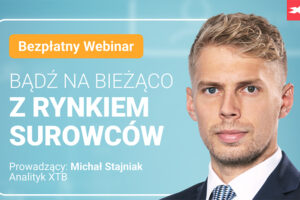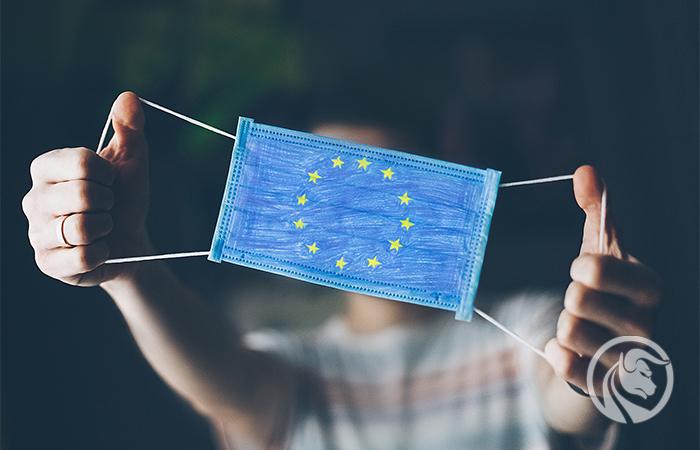Franco-German initiative: a promising start
Before the EU summit scheduled for May 27, a Franco-German tandem announced its post-pandemic plan yesterday evening, including expenditure from the EU budget of EUR 500 billion, financed de facto at federal level under the multiannual financial framework (2021-2027), a new EU health strategy based on research and development activities and joint stocks of medicines and medical devices, accelerating implementation the EU Green New Deal by strengthening the EU emissions trading system (e.g. setting a CO2 minimum price and adopting further financial incentives for the private sector in decarbonisation), as well as a strong appeal for the sovereignty of the economy suggesting in particular the implementation of the new industrial strategy and the deepening of joint market.
About the Author
 Christopher Dembik - French economist of Polish origin. Is a global head of macroeconomic research at a Danish investment bank Saxo Bank (a subsidiary of the Chinese company Geely serving 860 HNW customers around the world). He is also an advisor to French parliamentarians and a member of the Polish think tank CASE, which took first place in the economic think tank in Central and Eastern Europe according to a report Global Go to Think Tank Index. As a global head of macroeconomic research, he supports branches, providing analysis of global monetary policy and macroeconomic developments to institutional and HNW clients in Europe and MENA. He is a regular commentator in international media (CNBC, Reuters, FT, BFM TV, France 2, etc.) and a speaker at international events (COP22, MENA Investment Congress, Paris Global Conference, etc.).
Christopher Dembik - French economist of Polish origin. Is a global head of macroeconomic research at a Danish investment bank Saxo Bank (a subsidiary of the Chinese company Geely serving 860 HNW customers around the world). He is also an advisor to French parliamentarians and a member of the Polish think tank CASE, which took first place in the economic think tank in Central and Eastern Europe according to a report Global Go to Think Tank Index. As a global head of macroeconomic research, he supports branches, providing analysis of global monetary policy and macroeconomic developments to institutional and HNW clients in Europe and MENA. He is a regular commentator in international media (CNBC, Reuters, FT, BFM TV, France 2, etc.) and a speaker at international events (COP22, MENA Investment Congress, Paris Global Conference, etc.).
EU plans
This is not the first time the EU is planning to issue joint debt. In the past, the Union issued debt for macro-financial or balance of payments support purposes, but at a much lower rate. The current proposal stands out in two ways: the amounts under consideration (EUR 500 billion) and the political will underlying this initiative, which can pave the way for further fiscal integration and more solidarity transfers between North and South in the long term. One can even imagine that political leaders in the near future will use the common EU debt to solve other important problems, such as climate change or the refugee crisis. It is still unknown whether Chancellor Merkel's role in the decision was played by the judgment of the German Constitutional Court, but the Franco-German consensus is undoubtedly a promising step.
However, before the EUR 500 billion fund becomes a reality, we still have a long way to go. The key question is: are France and Germany ready to go the whole way and convince the other Member States, in particular the "economical", that this is the right direction. It is illusory to assume that by May 27 (date of the next EU summit), or even until the beginning of June, it will be possible to reach an agreement. The unanimity rule, which should have long been replaced by the majority rule, states that a compromise can only be reached through long and intensive negotiations, and we cannot rule out that a minority of one or two countries will block the whole process at the last minute.
In the coming weeks, we will witness an intense political trade fair between the Franco-German tandem and the other Member States. In our opinion, there are two main risks associated with this process. First of all, the essence of the project may be modified (e.g. new expenses will not necessarily be directed to the countries that need them most). Secondly, in exchange for support, Germany and France may be willing to accept a shameful compromise with some Eastern European countries. One can imagine that Hungary or Poland can support the Franco-German initiative only on condition that the EU's interference in the issue of democratic governance in these countries is reduced.
As we have said, the initiative of France and Germany is excellent news, but it is too early to celebrate.






















![Forex Club – Tax 9 – Settle tax on a foreign broker [Download the Application] Forex Club - Tax 9](https://forexclub.pl/wp-content/uploads/2024/02/Forex-Club-Podatek-9-184x120.jpg?v=1709046278)
![Trading View platform – solutions tailored to the needs of traders [Review] trading view review](https://forexclub.pl/wp-content/uploads/2024/03/trading-view-recenzja-184x120.jpg?v=1709558918)
![How to connect your FP Markets account to the Trading View platform [Guide] fp markets trading view](https://forexclub.pl/wp-content/uploads/2024/02/fp-markets-trading-view-184x120.jpg?v=1708677291)
![How to invest in ChatGPT and AI? Stocks and ETFs [Guide] how to invest in chatgpt and artificial intelligence](https://forexclub.pl/wp-content/uploads/2023/02/jak-inwestowac-w-chatgpt-i-sztuczna-inteligencje-184x120.jpg?v=1676364263)


![WeWork – the anatomy of the collapse of a company valued at $47 billion [WeWork, part II] wework bankruptcy story](https://forexclub.pl/wp-content/uploads/2024/04/wework-bankructwo-historia-184x120.jpg?v=1711729561)
![Adam Neumann – the man who screwed up Softbank [WeWork, part AND] adam neumann wework](https://forexclub.pl/wp-content/uploads/2024/04/adam-neumann-wework-184x120.jpg?v=1711728724)





![How to transfer shares to another brokerage office [Procedure description] how to transfer shares to another brokerage house](https://forexclub.pl/wp-content/uploads/2024/03/jak-przeniesc-akcje-do-innego-biura-maklerskiego-184x120.jpg?v=1709556924)

![The most common mistakes of a beginner trader - Mr Yogi [VIDEO] Scalping - The most common mistakes of a beginner trader - VIDEO](https://forexclub.pl/wp-content/uploads/2024/03/Scalping-Najczestsze-bledy-poczatkujacego-tradera-VIDEO-184x120.jpg?v=1711601376)
![Learning patience: No position is also a position - Mr Yogi [VIDEO] Scalping - Learning patience - No position is also a position - VIDEO](https://forexclub.pl/wp-content/uploads/2024/03/Scalping-Nauka-cierpliwosci-Brak-pozycji-to-tez-pozycja-VIDEO-184x120.jpg?v=1710999249)
![When to exit a position and how to minimize losses - Mr Yogi [VIDEO] Scalping - When to exit a position and how to minimize losses - VIDEO](https://forexclub.pl/wp-content/uploads/2024/03/Scalping-Kiedy-wyjsc-z-pozycji-i-jak-minimalizowac-straty-VIDEO-184x120.jpg?v=1710336731)





![How to transfer shares to another brokerage office [Procedure description] how to transfer shares to another brokerage house](https://forexclub.pl/wp-content/uploads/2024/03/jak-przeniesc-akcje-do-innego-biura-maklerskiego-300x200.jpg?v=1709556924)












